Climate report criticises Switzerland’s ‘insufficient ambition’
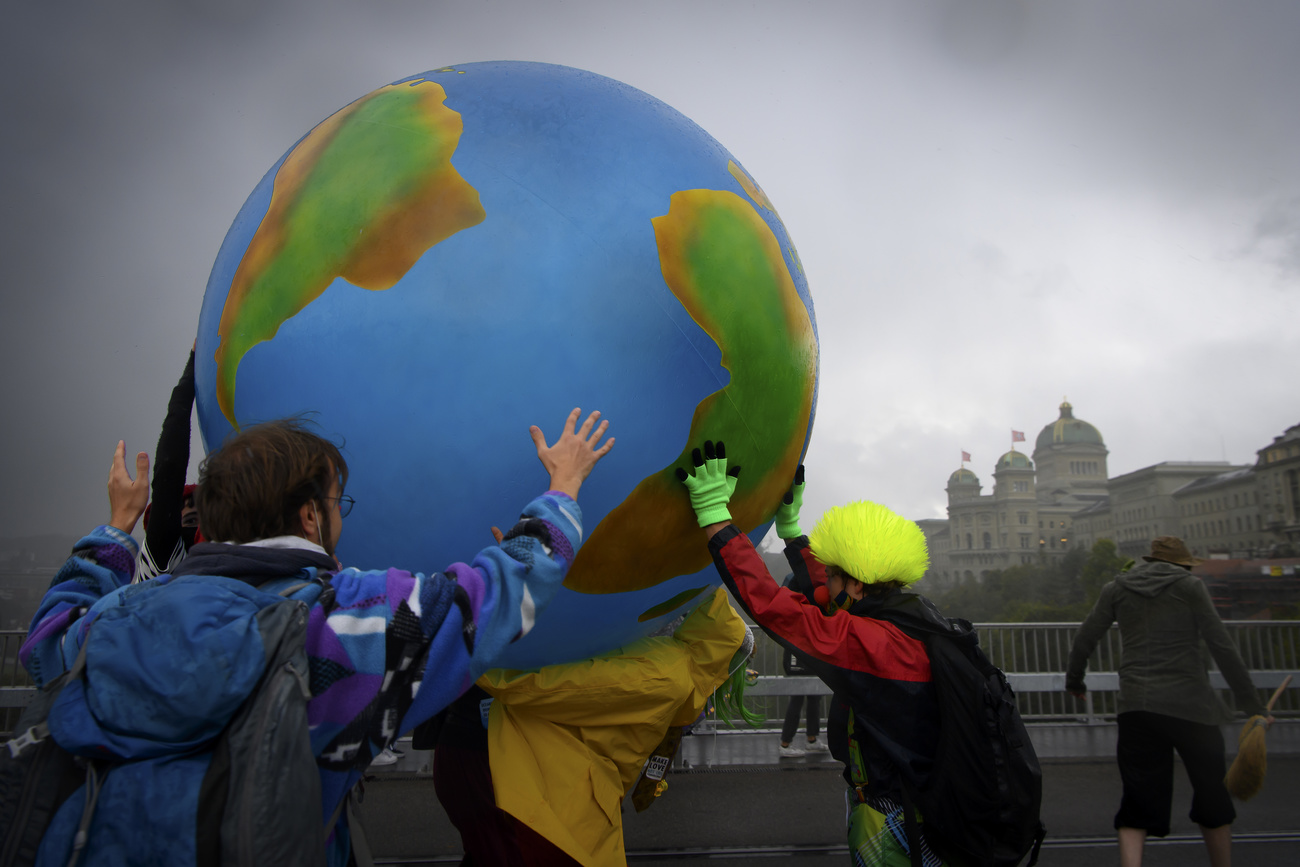
Switzerland has moved up two places in an annual league table that ranks countries according to their efforts at reducing greenhouse gas emissions. This reflects more progressive legislation but also an ongoing lack of ambition, according to the report.
The Alpine nation is now in 14th position, behind the usual frontrunners from Scandinavia but also behind Morocco and India, said the Climate Change Performance IndexExternal link (CCPI), published on Monday.
Switzerland received high ratings for greenhouse gas emissions and energy use and medium ratings for renewable energy and climate policy.
Switzerland has improved in all categories. But in the ‘greenhouse gas emissions’ and ‘renewable energy’ categories current levels and 2030 targets “are not in line with a well-below 2°C benchmark” and are therefore rated medium and low respectively.
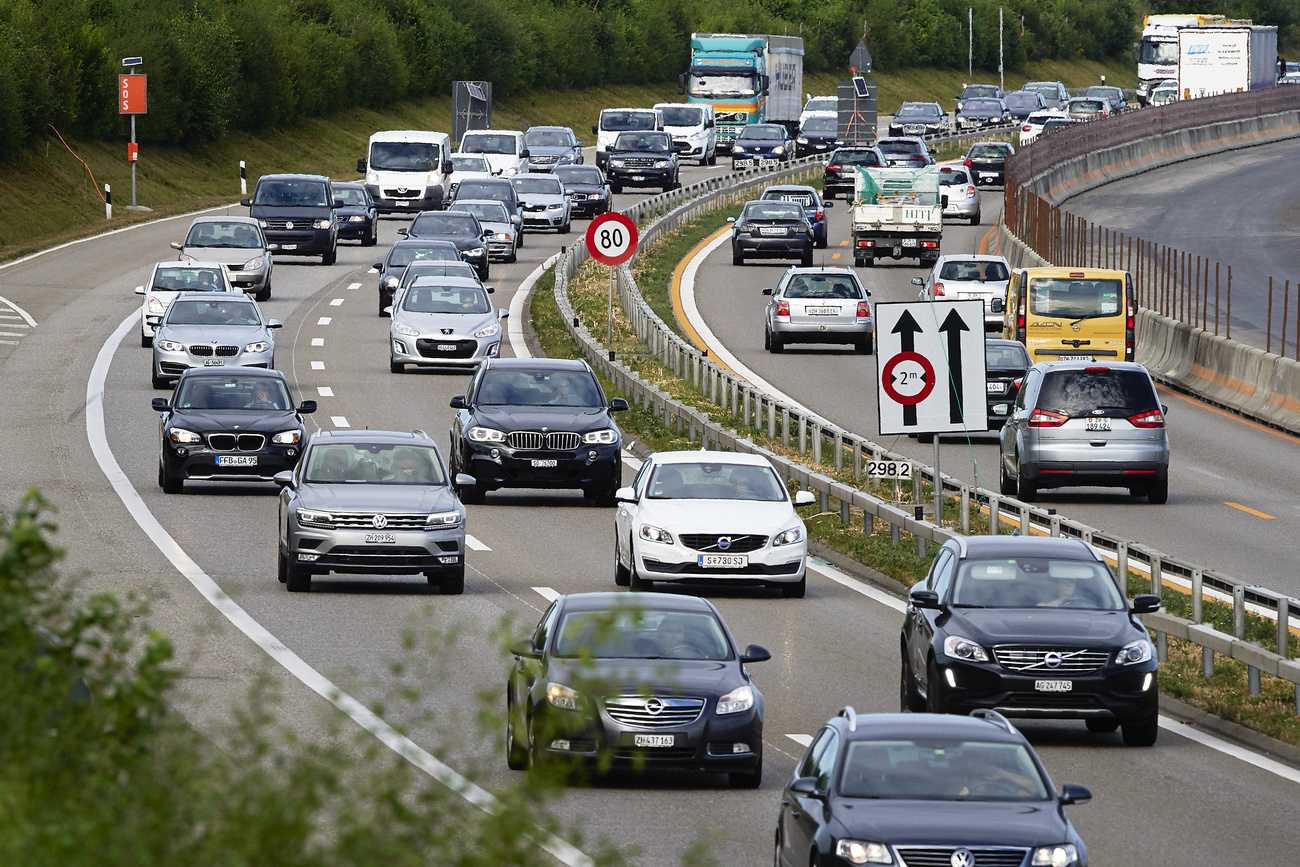
More
Switzerland misses its emissions targets
The report noted that while there is a CO2 law under discussion in Switzerland, experts criticised the lack of measures in the agricultural sector and only reporting duties for the financial sector included in the climate mitigation legislation.
Experts are also critical that Switzerland aims to reduce a significant proportion of national emissions through international emission certificates (internationally transferred mitigation outcomes: ITMOs). This presumably weakens mitigation efforts at the national level.
Bilateral agreements
“The overall medium rating experts give Switzerland’s climate policy therefore reflects the existing progressive legislation, such as in forestry, but a tendency towards insufficient policies and ambition across all sectors,” it said.
The report’s experts acknowledged Switzerland’s proactive role in promoting environmental integrity, as well as carbon market and transparency rules. But they called for increased funding for “public climate finance and strengthening of Switzerland’s engagement in loss and damage”.
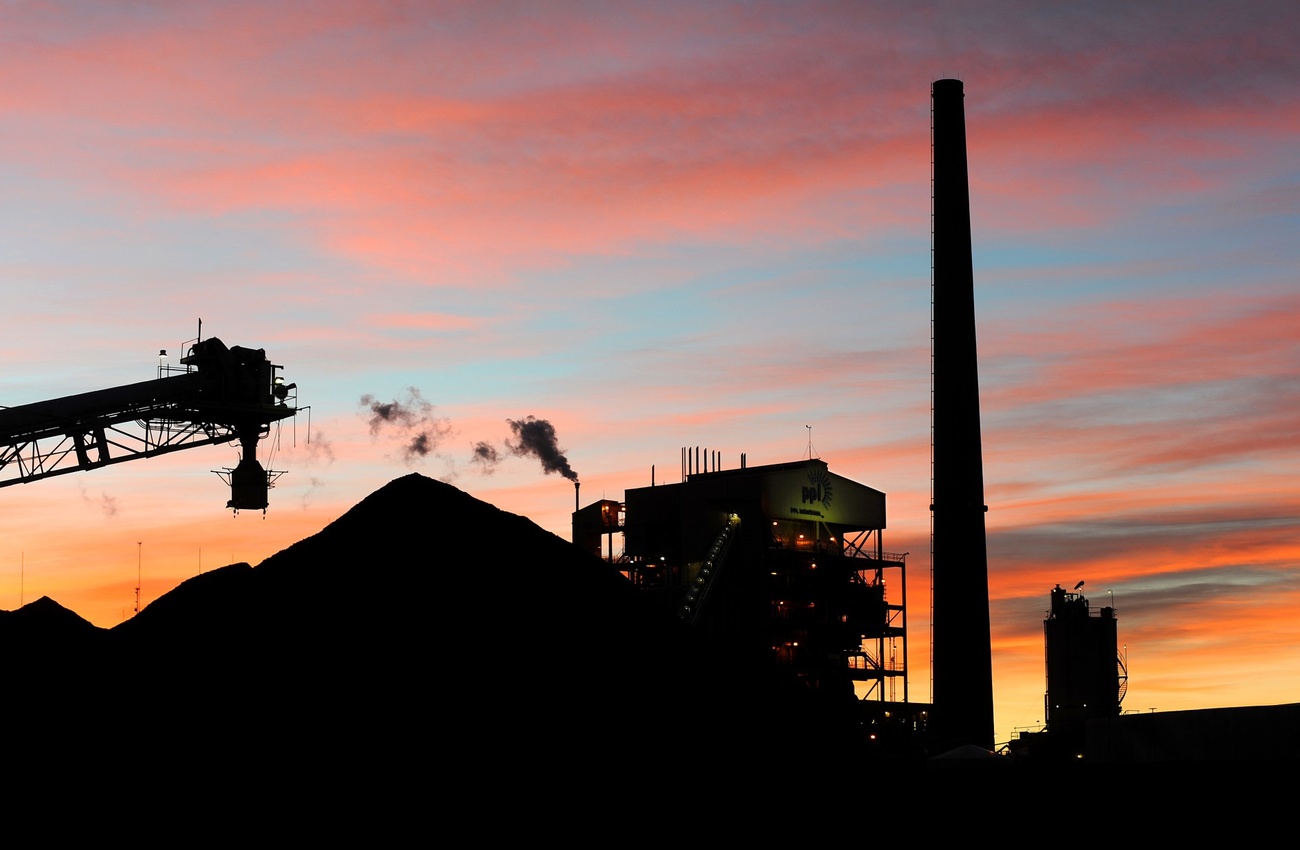
More
Swiss National Bank accused of lagging behind in green investment
“[Experts] also criticise Switzerland’s placing a great deal of energy into bilateral agreements to offset domestic emissions that are cheaper in other countries.”
The CCPI’s methodologyExternal link involves evaluating 57 countries and the European Union, which together generate more than 90% of global greenhouse gas emissions. Using standardised criteria, the CCPI looks at four categories, with 14 indicators: Greenhouse Gas Emissions (40% of the overall score), Renewable Energy (20%), Energy Use (20%), and Climate Policy (20%).
Sweden remained the highest-ranked country and the United States remained at the bottom.
The CCPI study has been compiled annually by the German environmental NGO Germanwatch since 2005.

In compliance with the JTI standards
More: SWI swissinfo.ch certified by the Journalism Trust Initiative

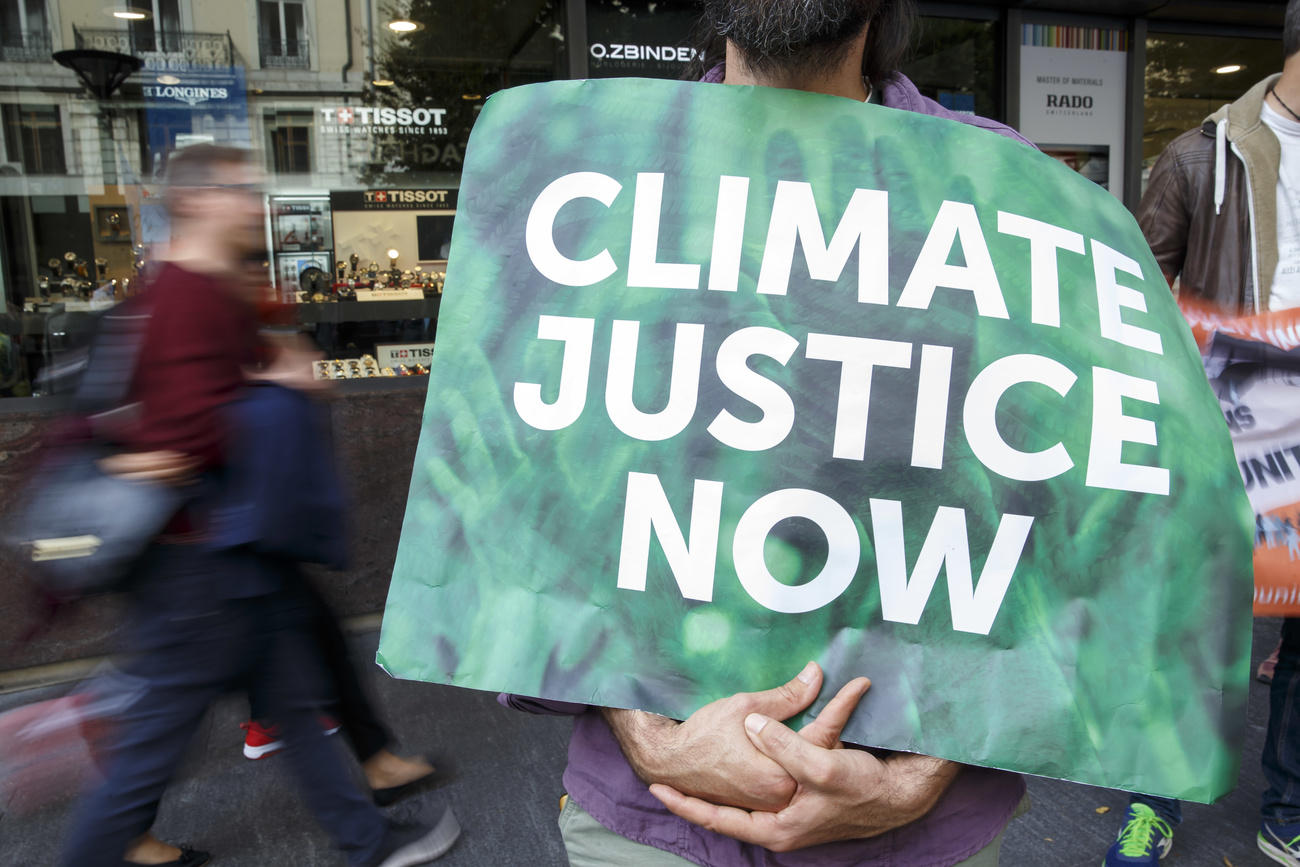
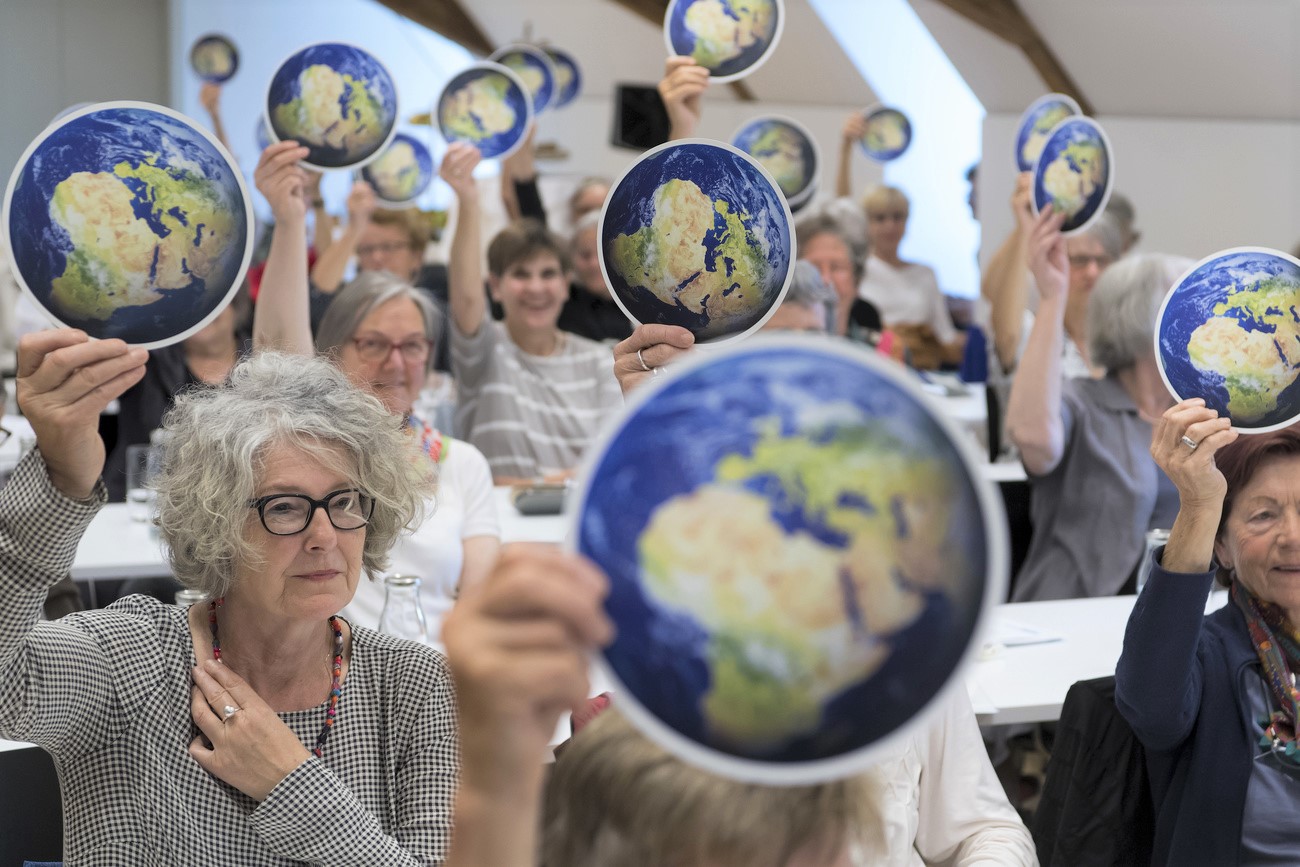
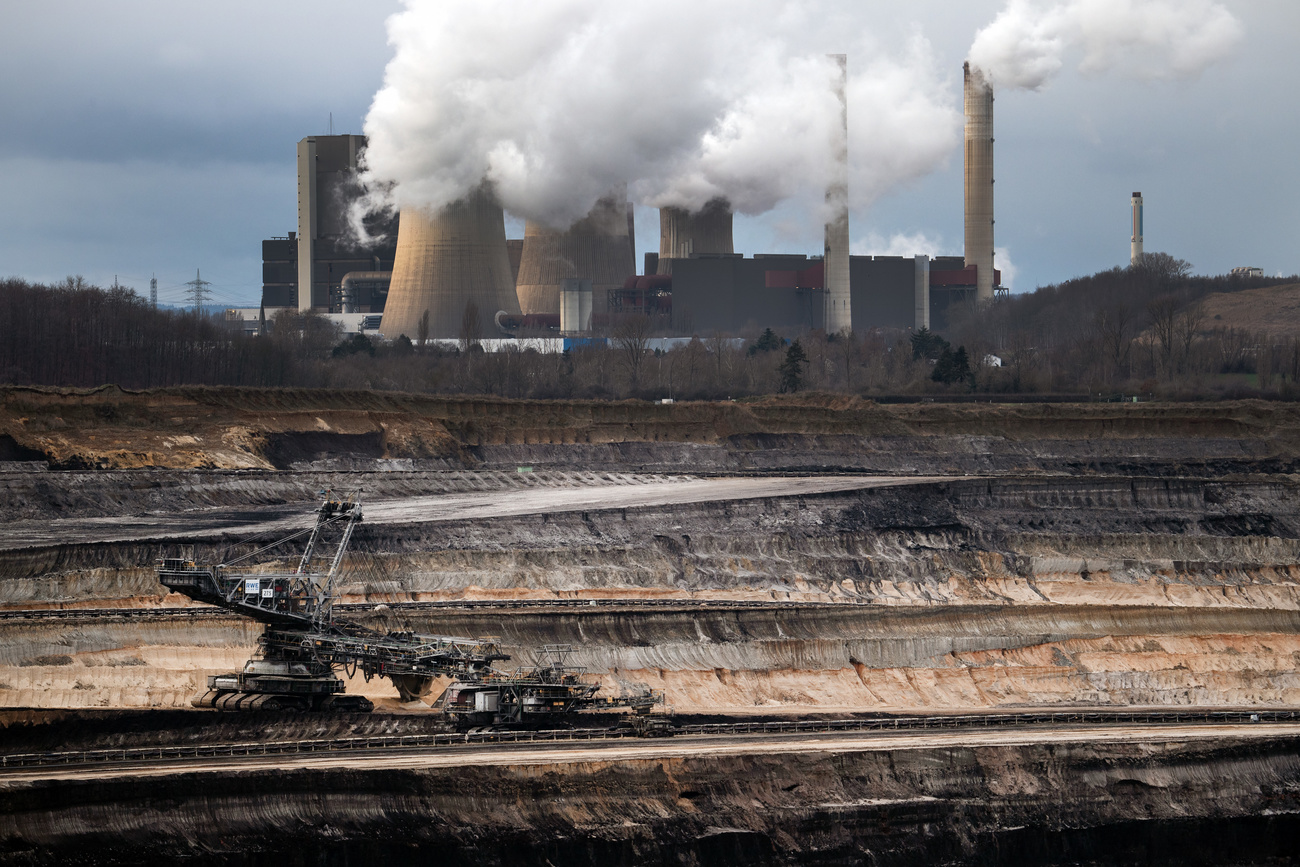
You can find an overview of ongoing debates with our journalists here. Please join us!
If you want to start a conversation about a topic raised in this article or want to report factual errors, email us at english@swissinfo.ch.